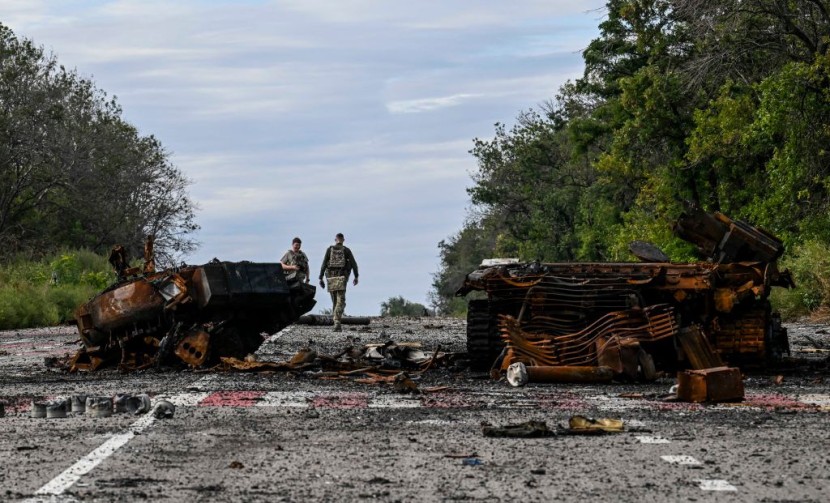
Ukrainian soldiers advanced deeper through fleeing Russian territory on Monday as Moscow battled with the collapse of its occupying army in northeastern Ukraine.
After Russia declared that it was leaving Izium, its major stronghold in northeastern Ukraine, early on Monday, the general command of Ukraine said that its forces had reclaimed more than 20 towns and villages in only the previous day.
According to the general staff referring to the newly recaptured territories: "Taking them under full control and stabilization measures are being carried out."
Russian Troops Allegedly Attacking Civilians
On Sunday, Russia launched missiles at power plants, triggering power outages in the Kharkiv region as well as the nearby Poltava and Sumy districts while hundreds of Russian troops left their positions, leaving behind enormous stores of ammunition and equipment.
Reuters correspondents reported in Kharkiv said the electricity came up on Monday morning, but the water supply was not yet restored. The regional governor reported that 80% of the electricity had been restored.
Ukraine criticized civilian backlash for military advances. Moscow remained silent while denying hitting civilian targets on purpose.
According to the Ministry of Defence of Great Britain, Russia likely ordered its soldiers to leave the whole Kharkiv region west of the Oskil River, cutting off its primary supply line that supported its operations in the east.
In the south, where Ukraine has undertaken a significant push in Kherson province to isolate hundreds of Russian soldiers on the west bank of the Dnipro River, the British ministry said that Moscow's forces were also having difficulty bringing reserves to the frontline.
What's Next for Russia?
According to CNN, prominent media leaders in Russia are attempting to portray this week's tragedy as the result of a deliberate effort. Television host Vladimir Soloviev reposted a Telegram commentary that insisted the "enemy, buying into an easy advance on a given sector of the front, drives into a trap."
Despite there being little indications to the contrary, the analyst added, "Right now, Russian forces are deliberately reorganizing.
Bloggers in Russia who have backed the offensive claim that a fundamental reassessment is necessary.
One blogger commented that a new strategy for the war in Ukraine is required, along with the "mobilization of the economy and industry" and the establishment of a "political" command center for the war.
Putin has refrained from a widespread mobilization throughout the crisis because it might not be well received at home.
Whether the Kremlin will now intensify its efforts to finish the special military operation or start looking for a diplomatic settlement is hard to predict.
Given last week's events, the first alternative is difficult; the second is embarrassing.
The third possibility-and maybe the most likely one-is that Russia will continue its grueling inch-by-inch assault despite gaining little to no new ground.
However, it now has to contend with a foe that has the wind at its back and is getting new injections of Western military help in time for the coming winter.
Ukraine's combat successes have renewed allied backing, and a conference in Germany this weekend produced further vows of long-term assistance.
In other news, the Russian-held Zaporizhzhia nuclear power station has been shut down. According to Al Jazeera, the International Atomic Energy Agency (IAEA), a nuclear watchdog, has certified that a power line has been restored, enabling the facility to use electricity from the grid to cool its reactors.
Russia and Ukraine each accuse the other of frequently bombarding the facility. A nuclear calamity might result from damage to the site, the UN's IAEA fears.
© 2025 HNGN, All rights reserved. Do not reproduce without permission.








